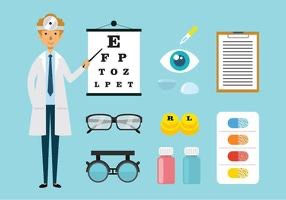
health tips

Leatha Foreman
Mar 6, 2024
March is “save our vision” Month
Eye Care
The American Optometry Association is observing March as the “save our vision” month in hopes that we will become more aware of the importance of regular eye care exams and practice good standards. According to their studies, we spend too much time staring at screens, and neglecting to protect our eyes. It has become second nature for many of us to have our eyes glued to mobile screens, T.V. screens, and laptop screens” all too often. This overexposure can contribute to eye stress and poor vision. Other contributing factors are exposure to direct sunlight, inadequate sleep, reading in the dark and unhealthy diets.
Reportedly, “the average American spends at least seven hours a day using electronic devices.” Over time, this causes not only visual damage, it can also “disturb our sleep pattern, and affect our overall health.” According to the American Optometry Association, medical technology continues to advance while good practical eye-care practices seem to decline. When we delay getting regular checkups, we may possibly heighten the health threat.
Should it be necessary to view electronic devices for long periods, we are advised to blink regularly which makes us refocus and moisten our eye lens. We are to practice the 20-20-20 rule which is viewing the screen every 20 minutes and shifting our gaze to an object that is at least 20 feet away for a minimum of 20 seconds. Also it’s vitally important to remember to take breaks and rest our eyes while moving our bodies every 20 minutes.
Wearing sunglasses to protect our eyes from the sun’s rays may help prevent cataracts and macular degeneration. To be most effective, the sunglasses should block 100 percent of UV rays, wrap around the sides of our eyes, and have polarized lenses to cut the glare.
The American Academy of Ophthalmology suggests four foods to promote healthy eyes. They are:
Beans and peas are high in zinc and other vitamins.
Oranges and other citrus fruits are high in beta-carotene.
Kale and spinach are particularly rich in antioxidants.
Salmon and other fish are rich in omega-3 fatty acids.
All of these foods can easily be included in our diets on a regular basis.
In the words of Kraff Eye Institute, “A poor diet leads to poor vision…” We are to eat lots of fruits and vegetables, and make sure that our bodies don't have any deficiencies.
Although there are many other great tips, today I will conclude with the importance of wearing safety goggles when participating in physical activities. Remember to purchase “eyewear that meets American Standards for Testing and Materials’ (ASTM) impact standards.” Make sure the eyewear doesn’t easily slip off while working out. It should be properly adjusted to remain in place.
In conclusion, good eye care can save one’s vision. In many circumstances, an eye specialist can help detect diabetes, high blood pressure and heart disease before symptoms are apparent and before permanent damage is done.
www.bluecrossmn.com
Leatha Foreman 3/6/24
